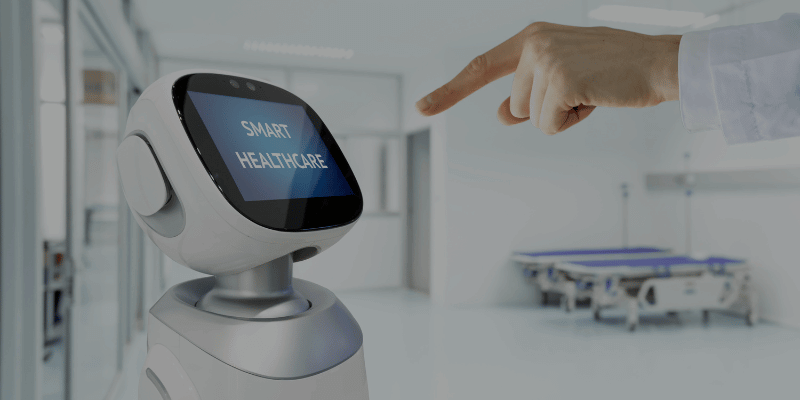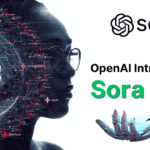Artificial intelligence (AI) has been making significant progress over the past few decades and has brought about several significant advances in various industries. One of the areas where AI has the potential to revolutionize the field is healthcare. AI has the power to transform healthcare by increasing efficiency, reducing costs, and improving patient outcomes. In this blog post, we will discuss current applications of AI in healthcare and explore the possibilities of its future.
Current Applications of AI in Healthcare:
Medical Imaging:
AI can help in medical imaging by detecting and diagnosing diseases such as cancer, brain injuries, and lung diseases. AI algorithms can analyze medical images more accurately than humans, and provide real-time results. This technology can be used to improve the accuracy of diagnoses, speed up diagnoses, and reduce the need for invasive procedures.
For instance, AI algorithms can help radiologists identify tiny tumors that would otherwise be difficult to detect, enabling doctors to treat patients earlier, resulting in better outcomes. Additionally, AI algorithms can also help in detecting abnormalities in mammograms, which can aid in detecting breast cancer early.
Virtual Assistants:
Virtual assistants such as chatbots and voice assistants are becoming increasingly popular in healthcare. Patients can use these tools to schedule appointments, ask questions, and get advice on their health. AI can also help to triage patients, allowing healthcare providers to focus on more complex cases.
For example, Babylon Health has developed an AI-powered chatbot that can diagnose medical conditions and recommend treatments based on a patient’s symptoms. The chatbot can also arrange appointments with doctors, order prescriptions, and provide follow-up care.
Electronic Health Records:
Electronic health records (EHRs) can be a valuable source of information for healthcare providers. However, the vast amount of data in EHRs can make it difficult for providers to find relevant information. AI algorithms can help to analyze and organize EHR data, making it easier for healthcare providers to access the information they need.
For instance, AI algorithms can help in identifying patients who are at risk of developing a certain condition by analyzing their medical history, lab results, and other health data. This can help healthcare providers in providing personalized care and timely interventions.
Drug Discovery:
AI can also help to speed up the process of drug discovery. AI algorithms can analyze large amounts of data to identify potential drug candidates, reducing the time and cost of developing new drugs. This technology can help to bring new treatments to patients more quickly and efficiently.
For example, BenevolentAI, a London-based AI company, has developed an AI system that can analyze millions of scientific papers and patents to identify new drug candidates. The company has used this technology to discover potential treatments for diseases such as Alzheimer’s, Parkinson’s, and rheumatoid arthritis.

Future Possibilities of AI in Healthcare:
Precision Medicine:
AI can help to develop personalized treatment plans for patients based on their individual genetic makeup, medical history, and lifestyle. This approach, known as precision medicine, has the potential to improve patient outcomes and reduce healthcare costs.
For instance, AI algorithms can help in identifying genetic mutations that may cause cancer or other diseases. This can enable doctors to provide personalized treatments that are tailored to the patient’s genetic makeup.
Disease Prediction:
AI algorithms can be used to analyze large amounts of data to identify patterns and predict the likelihood of certain diseases. This technology can help to identify patients who are at risk of developing certain conditions, allowing healthcare providers to intervene early and potentially prevent the onset of disease.
For example, Google’s DeepMind has developed an AI algorithm that can predict the onset of acute kidney injury (AKI) up to 48 hours before it occurs. This technology can help doctors in providing timely
Robotics:
Robotic technology is already being used in healthcare for surgical procedures and other tasks. However, AI has the potential to make robotic technology more advanced and efficient. AI algorithms can help robots to perform tasks more accurately and quickly, reducing the risk of error and improving patient outcomes.
To improve patient experience:
In future AI also help to improve patient experience. now human gives a information about procedure and hospital. In future AI will give automatic information to patient so patient experience will improve.
AI Robot-Assisted Surgery
Over the past few years, the healthcare industry has witnessed a significant surge in the use of robot-assisted surgeries, which provide patients with reduced pain and quicker recovery times. By utilizing AI technology, surgical robots can optimize the surgical process and minimize errors that may occur with human physicians. Some of the top AI companies that are developing surgical robots include Auris Health, based in Redwood City, California, Accuray located in Sunnyvale, California, and Intuitive, headquartered in San Francisco, California.
Conclusion:
AI has already made significant advances in healthcare, and its potential for the future is enormous. From improving medical imaging and drug discovery to developing personalized treatment plans and predicting diseases, AI has the power to transform healthcare and improve patient outcomes. However, as with any new technology, there are also challenges and concerns that must be addressed. Healthcare providers and policymakers must work together to ensure that AI is used in a responsible and ethical manner, and that patient privacy and safety are always a top priority. With the right approach, AI has the potential to revolutionize healthcare and improve the lives of millions of people around the world.














